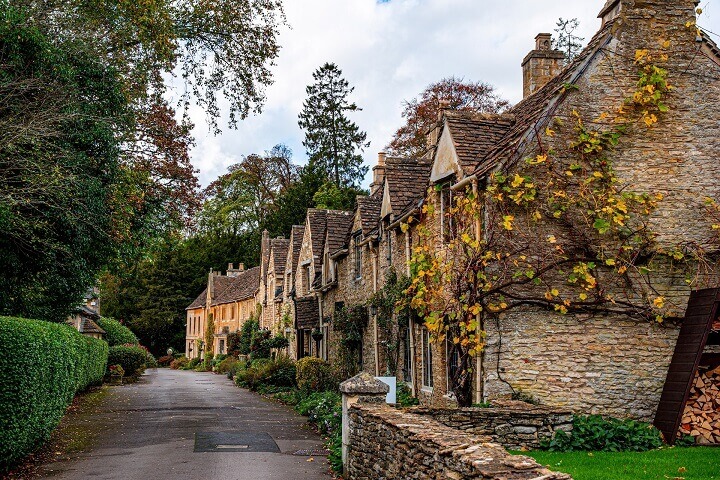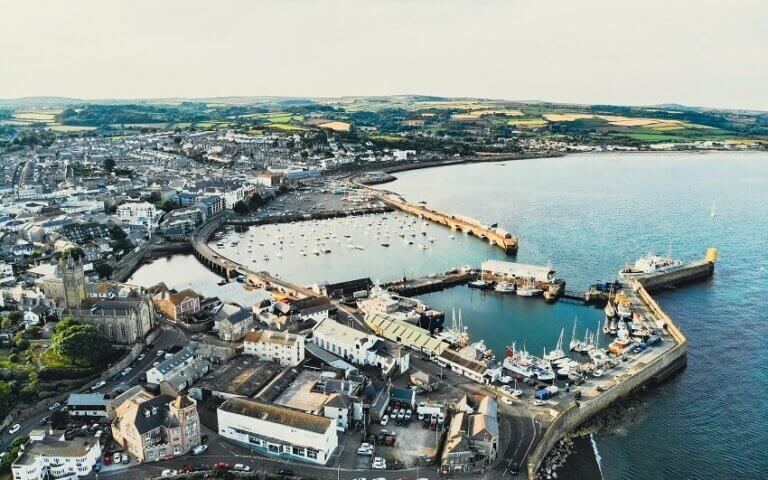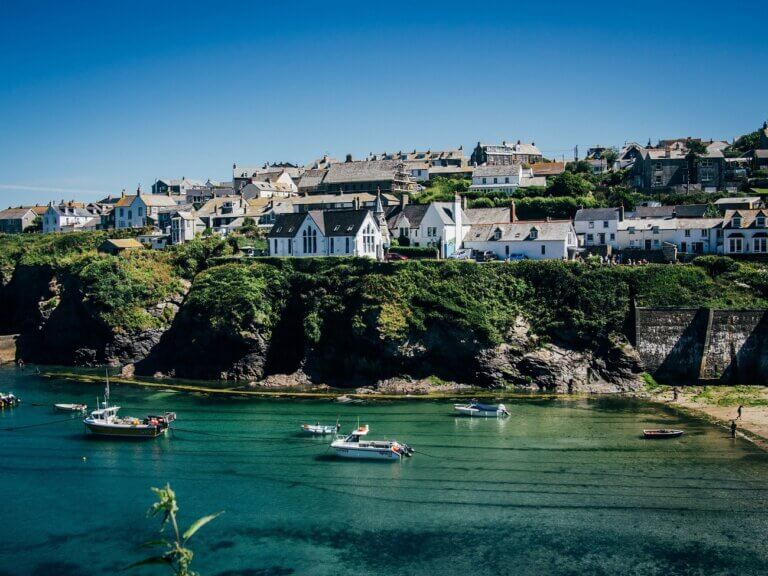What is the UK Famous for? 43 Things You Need to Know
If you’re wondering: “what is the UK famous for?”, you’ve come to the right place.
The UK is a popular travel destination, known for its rich history, vibrant cities, and unique cultural experiences. This appeal is further balanced by its quaint villages and stunning countryside.
For clarity, the United Kingdom comprises England, Scotland, Wales, and Northern Ireland. Each country within the UK has its own unique heritage and character. However, for the purposes of this article, we’ll examine what makes the “UK Inc” brand famous as a whole.
As one of the world’s largest economies, the UK has had a significant impact globally. As a result, various facets of British life have become visible far beyond its borders. Some of these aspects have even been promoted by the UK government to build export markets and enhance the country’s influence.
The UK is famous for a wide range of things, from its global capital, London, and the Royal Family, to football and pub culture. However, these only scratch the surface.
Let’s delve deeper into the many aspects for which the UK is both known and often loved.
Disclosure: Some of the links below are affiliate links, which means that at no additional cost to you, I may earn a small commission if you click through and make a purchase. Please note, I only recommend products and services that I know and love. Read full Privacy Policy here.
43 Things the UK is Famous for
1.Beautiful Castles
The UK is home to thousands of historic castles scattered across various parts of the country. A visit to the UK wouldn’t be complete without exploring at least one.
The first defensive hillforts emerged in the UK during the Bronze and Iron Ages. Later, as the Romans conquered parts of Britain, they introduced new style of fortresses.
However, it was the Normans who began building ‘proper’ castles after their conquest in 1066. Over the centuries, castles extended beyond their defensive functions. They became luxurious aristocratic residences, serving as symbols of wealth and power.
In the 18th and 19th centuries, many castles were abandoned and fell into disrepair as their aristocratic owners transitioned to more comfortable country houses. Only ruined shells remain of some of them today.
Nonetheless, visitors to the UK have an abundance of choices when it comes to exploring castles. From the iconic Tower of London and Edinburgh Castle to the romantic ruins of Tintagel Castle in Cornwall and Dunnottar Castle in Scotland, there is something for every history lover.
No matter which part of the UK you explore, it’s likely there will be at least one historic castle nearby that is worth a visit.
2.William Shakespeare
One of the greatest English-language poets and playwrights of all time, William Shakespeare was born in Stratford-upon-Avon in Warwickshire, England in 1564. Although much of his life remains a mystery due to incomplete historical records, he left a rich legacy of poetry and plays.
If you’d like to delve deeper into Shakespeare’s life during your next trip to the UK, Stratford-upon-Avon is a must-visit. Here, you can tour Shakespeare’s childhood home and the site of his adult residence.
While in Stratford-upon-Avon, you can also see the Bard’s work come alive through performances by the award-winning Royal Shakespeare Company at the Royal Shakespeare Theatre.
Another way to experience Shakespeare’s work is to attend a show at the Shakespeare’s Globe, situated on the south bank of the river Thames in London.
This reconstruction of the original Globe Theatre, for which Shakespeare penned many of his plays, offers a glimpse into the authentic experience of watching a performance during the Bard’s era.
3.London, the UK’s Capital City
London is one of the most visited cities in the world and for good reason. The capital of the UK is home to world-class museums, art galleries, theatres and iconic historic sites. It also offers a fantastic dining, shopping and nightlife scene.
London has a reputation for being extortionately expensive, overcrowded and overwhelming. These things are completely true, especially if you are a local trying to make ends meet on an average salary.
However, as you get to know the city better, you will discover many quieter spots and plenty of free or affordable things to see and do. London is and will always have something to offer to first-time visitors and those who have been there a hundred times.
There is a famous saying by writer Samuel Johnson: “When a man is tired of London, he is tired of life.” It still rings true today.
4.Red Double Decker Buses
Red double decker buses are considered a symbol of the UK and have been a part of local life since the 19th century. Although you can spot different-coloured double decker buses across many UK cities and even other countries including New Zealand and Australia, the red ones are unique to London.
Buses are an affordable way to get around London. A single journey costs £1.75 (US $2.20) no matter how far you travel. In my experience, they are great for short journeys but for longer ones, other forms of transportation, such as the tube, are often a better option.
I enjoy sitting on the front seat of the top deck as I can watch the hectic world of London go by. However, travel by bus can be painfully slow during the rush hour. So, if you need to get somewhere quickly, you might be better off taking the tube.
5.Ancient Universities
The UK is home to some of the oldest and most prestigious universities in the world.
Oxford and Cambridge universities, founded in 1096 and 1209 respectively, are the most renowned educational institutions in the country and beyond. They consistently rank at the top of global university rankings and have produced some of the world’s greatest scientists, politicians, and creatives.
However, they are not the only ancient universities of note. Scotland boasts several institutions founded in the 15th century, including the University pf St Andrews (1413), University of Glasgow (1451) and University of Aberdeen (1495). The prestigious Edinburgh University began its life in 1583.
Studying at one of these universities, even for an exchange semester, provides a unique experience that is hard to replicate outside Europe. However, even if your student days are behind you, you can still visit these institutions and soak in their unique atmospheres.
Oxford, Cambridge, and St Andrews are historic towns popular with overseas visitors. Many museums and historic sites associated with these universities are open to the public. Glasgow, Edinburgh, and Aberdeen also feature outstanding museums worth visiting.
6.Harrods
If you ask a lover of luxury fashion what the UK is famous for, they are likely to mention Harrods. Although it is currently owned by the state of Qatar, it is still the most well-known department store in the UK.
Located in well-heeled Knightsbridge, historic Harrods is the place to go for high-end designer fashion, jewellery, watches and beauty products. To complete the picture, the store also offers a great selection of luxury furniture, home accessories, books and electronics.
If shopping is not on the cards, it’s worth visiting Harrods just for its food selection that caters to all tastes. From a classic afternoon tea experience and French patisserie to Pan-Asian eats and Tom Kerridge’s fish and chips, you won’t leave hungry.
If you’d love to take some delicious goodies home, check out Harrods’ Food Hall packed to the brim with fresh produce, cheeses, charcuterie, sweet treats and fine wine.
7.Chocolate Box Villages
The UK is often associated with exciting historic cities, but it also boasts some fairy tale villages that will make your heart melt.
The UK’s historic villages often feature charming period cottages, cosy pubs and traditional tea rooms. They are normally surrounded by stunning countryside, adding to their charm.
Picturesque villages can be found across all countries of the UK. Some of England’s most renowned chocolate box villages include the romantic Castle Combe in the Cotswolds and charming Grasmere in the Lake District.
In Scotland, be sure to visit Portree on the Isle Skye. This coastal village features a picturesque harbour and a beautiful mountainous backdrop.
Those heading to Wales should add Beddgelert to their itinerary. This small but perfectly formed village is surrounded by the stunning Snowdonia landscapes.
If you are visiting Northern Ireland, be sure to stop in the bijou coastal village of Ballintoy. It is famous for its charming historic harbour and beach walks. The village was even featured in the Game of Thrones TV series.
8.World Class Museums
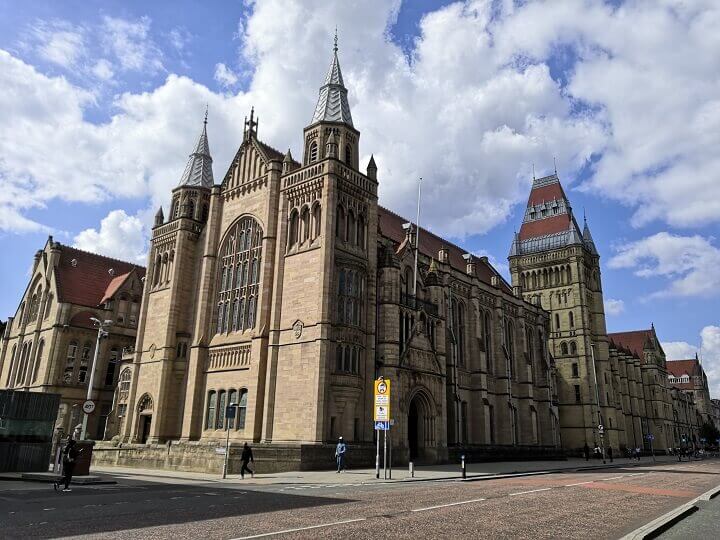
The UK boasts some of the finest museums in the world, and multiple trips would be needed to cover just those in London.
The British Museum, located in the UK’s capital, is one of the largest museums globally. Its exhibits span thousands of years of human history. I highly recommend exploring their Ancient Egypt collection, as it’s among the most comprehensive in the world.
Other must-visit London museums include the Natural History Museum, Victoria & Albert Museum, and Tate Modern. But don’t limit yourself to London; other parts of the country offer fantastic museums as well.
The National Museum of Scotland in Edinburgh, the Museum of Liverpool and the Yorvik Viking Centre in York are just a few that are well worth a visit.
One of the great things about the UK museums is that many offer free entry, ensuring maximum accessibility for all.
9.British Royal Family
An article discussing what the UK is famous for would be incomplete without mentioning the British Royal Family. While other countries have their own royal families, the British monarchy is arguably the most well-known and likely the wealthiest.
The current head of the British Royal Family is King Charles III, who ascended to the throne in September 2023 following the death of his mother, Queen Elizabeth II, after her extended reign.
Other notable members of the Royal Family include Charles’ relatives, many of whom undertake public engagements to promote a positive image of the monarchy.
The British monarch’s role is largely symbolic and ceremonial, with no actual governing power. However, the Royal Family is incredibly affluent, owning billions of pounds worth of assets.
Full disclosure: I’m not a big fan of the Royal Family and believe that this institution needs significant reforms. Nevertheless, the local population has a positive view of the monarchy overall, so it is highly likely it will be around for a while.
Still, it’s impossible to deny that the Royals hold a certain allure for tourists. Many beautiful historical sites associated with the monarchy, such as Buckingham Palace, Windsor Castle, and Holyrood Palace, are open to visitors.
10.Imperial Past
Somewhat connected to the Royal Family, the UK is also famous for its complex imperial heritage. The British Empire spanned roughly 400 years and was, at one point, the largest empire in history.
At its peak, over 400 million people, amounting to just over 20% of the global population, were under British rule. Including its dominions and protectorates, the Empire controlled nearly a quarter of the world’s land area.
The Empire arose from the acquisition of overseas territories. From the Americas to Oceania, Britain established colonies in every corner of the world. These colonies served as sources of raw materials and as export markets for British products.
While many in Britain financially benefited from the Empire, it also inflicted immense suffering upon the indigenous populations of the colonised regions. The British typically imposed their governance style and values, often using force, on these territories to enhance control.
In contemporary Britain, the imperial legacy is undergoing reassessment and scrutiny. History is, of course, complex and often reveals the dark side of human nature. Ideally, the lessons from the past should be used to create a better, more equitable future.
11.Literary Heritage
Over the centuries, the UK has been home to many remarkable writers and poets. This article has already mentioned William Shakespeare, but there are so many other literary icons worth noting.
From classic authors such as Jane Austin, Charles Dickens and George Orwell to modern icons like J. K. Rowling, Neil Gaiman and Irvine Welsh, there is a vast expanse of British literature to explore.
On your next trip to the UK, you can explore many historic locations associated with your favourite authors. Follow in the footsteps of William Wordsworth in the Lake District and learn about Jane Austin’s life at the Jane Austen Centre in Bath.
Fans of Arthur Conan Doyle are sure to appreciate the Sherlock Holmes Guided Tour of Edinburgh, while admirers of the Brontë sisters should venture to Yorkshire to experience the landscapes that inspired their writings.
These suggestions are just the tip of the iceberg. Depending on your literary tastes, there’s a raft of tours, museums, festivals, and immersive experiences across the country waiting to be discovered.
12.Stonehenge – an Ancient Mystery
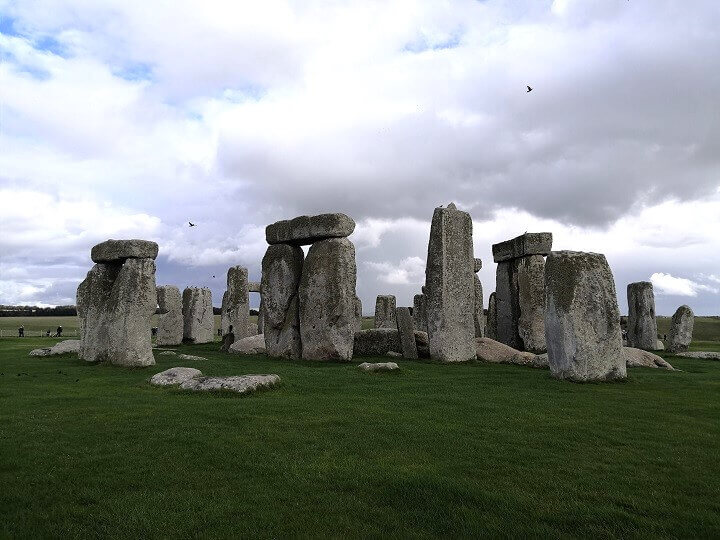
The UK is brimming with incredible historic attractions, including several designated as UNESCO World Heritage Sites. One of the most enigmatic ancient monuments that the UK is known for around the world is Stonehenge.
Situated in Wiltshire, South West England, Stonehenge is a prehistoric stone circle. It was constructed in phases, with the oldest section dating from approximately 3000 to 2935 BCE. It was an engineering feat of its time, likely requiring the collective effort of hundreds of people.
The original purpose of Stonehenge is still shrouded in mystery. Given the hundreds of burial mounds in the vicinity, it is likely that it served as a religious site. It is also possible that it was used for astronomical observations.
You can experience the mystical atmosphere of Stonehenge by visiting the site itself and learning about its history at the adjacent visitor centre. You can book your tickets in advance with Get Your Guide.
For those considering a day trip to Stonehenge from London, there are a few organised tour options that will make travel to this historic site easier. Here are some top-rated options:
- Half-Day Stonehenge Tour from London
- Stonehenge Inner Circle and Windsor Day Trip
- Stonehenge & Roman Baths Full-Day Trip
13.Stunning Countryside

When visiting the UK, many travellers don’t venture outside London. This is understandable because this incredible city offers endless options for things to see and do. However, the UK also has a bucolic side worth exploring.
Despite being a highly urbanised society, the UK still boasts large expanses of picturesque countryside. The local public transport infrastructure makes it quite accessible for visitors. The hardest part is to choose your destination.
For breathtaking landscapes, consider adding the Lake District, Yorkshire Dales and the Peak District to your itinerary. If Wales is on your route, don’t miss the enchanting Wye Valley and the dramatic Snowdonia.
In Scotland, you will be absolutely spoilt for choice when it comes to stunning natural wonders. Between the Cairngorms National Park and the Isle of Skye, among others, nature lovers will undoubtedly be in their element.
Northern Ireland offers its own set of scenic gems. For a taste of its best natural attractions, explore the Giant’s Causeway and the Mourne Mountains.
14.Cosy Pubs
Pub culture is another thing that the UK is famous for and is an integral part of the local culture. The term “pub,” which is short for “public house,” refers to a venue where people gather to socialise and enjoy alcoholic drinks.
Nowadays, there is a variety of pubs on offer, from basic establishments serving as a socialising hub for their local communities to more upscale ones complete with cosy traditional interiors, an extended drink selection and occasionally a roaring fire.
Interestingly, while pubs continue to hold a special place in the British heart, their numbers have been dwindling over the past few decades. This decline can be attributed to a mix of factors, including high beer taxes, stagnant wages, the smoking ban, and a general decrease in alcohol consumption.
In my opinion, not all pubs are destined to vanish, especially those in the touristy areas. Also, many are adapting to the times and evolving to stay relevant.
A notable change is the rise of the gastropub that combine high-quality dining with craft drinks. Some gastropubs have even garnered Michelin stars, reflecting their culinary excellence.
So, on your next visit to the UK, I encourage you to pop into a local pub to soak in the ambiance and perhaps enjoy a pint. If alcohol isn’t your thing, there are always non-alcoholic alternatives available.
15.Wimbledon Championships
The Championships, Wimbledon, commonly known simply as Wimbledon, is the oldest and one of the most prestigious tennis tournaments in the world.
Launched in 1877, it is one of the four iconic Grand Slam championships, alongside the Australian Open, the French Open and the US Open. Attending a Wimbledon tennis match is a must-see for tennis fans, offering a rare opportunity to see some of the greatest world players in action.
The tournament is also steeped in tradition, which makes attending the event even more special. For example, players are required to wear white, and the advertising is kept clean and minimal. The iconic Royal Box often hosts members of the royal family and VIP guests.
Visitors can also enjoy the traditional snack of strawberries and cream, perfectly complemented by Pimm’s, an iconic British summer cocktail. They may also spot a celebrity or two in the crowd.
Unfortunately, securing tickets to Wimbledon is not easy. You can apply for them through an online public ballot. If you’re lucky enough to be allocated tickets, you’ll have a few days to complete the purchase. Prices vary depending on the day, court, and seating options.
The other option is to join the famous Wimbledon queue on the day of the event, as additional tickets are released then. Be prepared, however, to camp overnight to secure these coveted tickets.
16.Royal Ascot
Royal Ascot is one of the UK’s most iconic racing events and an important part of the British social calendar, popular with celebrities and socialites.
The five-day event is held in June at the historic Ascot Racecourse in Ascot, just an hour’s drive from London. It attracts the world’s top racehorses and hundreds of thousands of visitors every year.
As the name suggests, Royal Ascot has a connection to the Royal Family. The late Queen Elizabeth II, who loved her racehorses and even owned a few winning ones, was a regular attendee.
Royal Ascot brings together fine sport and grand traditions, making it an unforgettable social experience. As a result, event tickets are in high demand. It is best to book in advance on the Royal Ascot website to avoid disappointment.
Although anyone can buy a ticket to the event, the most exclusive spot for attendance is the Royal Enclosure. Entrance is by invitation only, from an existing member.
However, even if you don’t have any high-flying connections, Royal Ascot is a fun day out, offering a chance to experience traditional British pomp and potentially enjoy some celebrity spotting.
17.Football
Football, the most popular sport in the world, began its life in the UK. It is the country’s national sport, and many people are deeply passionate about their local teams.
Games that involved kicking a ball around a field have been played in England since medieval times. These early versions of football were popular across many towns and villages. However, these precursor games had few rules and could be so violent that some players even died.
In 1863, the Football Association was founded, leading to a gradual standardisation of the rules and the ball. Despite these formalisations, the game continued to evolve. In 1872, the first international football match was played between England and Scotland. The rest, as they say, is history.
The best way to immerse yourself in the football culture of the UK is, of course, to attend a game. Tickets can be quite expensive, however. If attending a match isn’t feasible, you can visit many famous football stadiums, including Arsenal, Manchester United, and Anfield, on a backstage tour.
Also, Manchester is home to the National Football Museum, where you can learn about the history of the sport and its impact on the UK society.
18.Rugby
The UK is famous for inventing another popular sport: rugby. Although today the sport is enjoyed by millions of people all over the world, it originated in the small town of Rugby in Warwickshire.
According to legend, in 1823, during a game of school football at Rugby School, a pupil named William Webb Ellis picked up the ball and ran with it to the opposing team’s goal line. This move supposedly evolved into the distinctive handling of the oval ball seen in the game today.
The evidence to support this story is not conclusive. However, Rugby School did have a major influence on how the game is played today, as this is where the rules of the game were established.
You can visit Rugby School and its hallowed rugby ground on a guided tour. Tours run nearly every Saturday throughout the year and cost £8.50 (US $11) per person.
The school recommends reserving your spot in advance by email or phone. You can find their contact details on the school’s website.
19.Cricket
Another national sport for which the UK is famous is cricket. This bat and ball game, with some similarities to baseball, is known for its complex rules and long matches, some of which last for days.
The exact origins of this game are uncertain. The first references to cricket started to appear in the 17th century, but it’s likely that people began playing a variation of it even earlier.
The expansion of the British Empire allowed cricket to spread to far-flung destinations around the world. To this day, it remains a popular sport in many former colonies, including Australia, New Zealand, India, Pakistan, and the West Indies.
The most famous cricket ground in the UK is Lord’s Cricket Ground, situated in the well-heeled St. John’s Wood neighbourhood in London. Also known as the ‘Home of Cricket,’ Lord’s hosts prestigious national and international competitions. Watching a game there is a must for cricket lovers.
If attending a match is not an option, you can still go on a backstage tour of Lord’s to learn about its history and traditions. You can book this experience on the Lord’s website.
20.Winston Churchill
Winston Churchill is one of the most iconic political figures of the 20th century. He is widely admired around the world for his leadership during World War II and is often seen as a symbol of British resilience and the ‘keep calm and carry on’ attitude.
However, Churchill’s career was not without controversy. His views on race, imperialism, and labour rights are, to say the least, questionable by today’s standards. It’s worth noting that many of his controversial opinions would have been considered normal and acceptable during his time.
Nevertheless, Churchill’s contributions to the defeat of Nazi Germany and Allied war strategy are undeniable. He is also famous for his passionate and eloquent speeches that rallied the nation during those challenging times.
Ultimately, instead of idealising Churchill, we should remember that he was human, complete with all the idiosyncrasies and complexities that come with that. Despite this, he left an important legacy and significantly impacted how our world looks today.
If you would like to visit sites associated with Churchill during your next trip to the UK, be sure to add the Churchill War Rooms museum in London, the magnificent Blenheim Palace where he was born, and the Houses of Parliament to your itinerary.
21.King Arthur
Another individual, albeit a mythical one, for whom the UK is famous for is King Arthur. This legendary ruler features in many medieval tales and romances filled with magic, heroic battles, and valiant knights.
This character has captivated the minds and hearts of people for generations. Thanks to numerous films, TV shows, books, and comics about him, Arthur, Merlin, the Knights of the Round Table, and the Holy Grail have all become household names.
There is a possibility that the legends about King Arthur were based on a real person. His real-life prototype could have been a 5th-century Celtic leader who fought against the Anglo-Saxon invasion. However, we don’t have enough historical records to know for sure.
There are still some sites around the UK that you can visit to reconnect with the King Arthur legend. For example, the dramatic ruins of Tintagel Castle in Cornwall are said to be the birthplace of the king.
22.Robin Hood
The UK is also home to the world’s most famous outlaw, Robin Hood. According to legends, he lived in Sherwood Forest in Nottinghamshire, with his band of ‘Merry Men’. They robbed the rich and gave the proceeds to the poor and fought against the Sheriff of Nottingham.
First literary references of Robin Hood appeared in the 14th century. Since then, the romanticism of this character resulted in many plays, films and TV programmes made about him.
Attempts have been made to determine if Robin Hood was a real historic figure. However, it’s likely that the first mentions of him were based on local folklore only. There may have been a real-life Robin Hood person, but he had little to do with the exploits we’ve heard from legends.
Nevertheless, you can still visit the many places associated with the Robin Hood stories. Walk in the footsteps of his Merry Men in Sherwood Forest or enjoy the picturesque Robin Hood Bay in Yorkshire, his supposed coastal hideout.
23.Loch Ness Monster
The UK boasts a huge collection of mythical creatures, with the Loch Ness Monster being one of the most famous. Nicknamed Nessie, this large marine creature is believed to roam Loch Ness in the Scottish Highlands.
Over 1,000 supposed sightings of the Loch Ness Monster have been recorded since AD 565. Even though there has been no concrete evidence of Nessie’s existence so far, the legend continues to fascinate people.
Searches for Nessie still occasionally take place. The most recent one saw a group of international volunteers explore the shores and waters of Loch Ness in August 2023. Unfortunately, that search did not yield any significant results.
Whether or not you believe in an ancient monster, it’s worth visiting Loch Ness for the beautiful scenery alone. If you’d like to learn more about Nessie, be sure to visit the Loch Ness Centre, just a short drive from the loch itself.
24.Traditional English Breakfast
No trip to the UK would be complete without enjoying the traditional Full English breakfast at least once. Also called a fry-up, this substantial meal normally includes fried eggs, sausages, bacon, beans, tomatoes, mushrooms and toast. It can also come with black pudding and bubble and squeak.
You will find that there are some regional variations of this dish across the UK. For instance, a Full Scottish will often include a potato scone and haggis. The Irish version features soda bread. Welsh breakfast adds Penclawdd cockle and fried laverbread cake made with seaweed to the mix.
Traditional breakfast is easy to find as it is normally served at most cafes across the country. Some eateries offer vegetarian and vegan options, and occasionally put their own stamp on it by adding some different items to the mix like avocado.
Personally, the full English is too heavy for me, but it does work as an occasional treat to start a long day.
25.Whisky
The UK is famous for its quality whiskies, and Scotland, in particular, is considered the home of some of the finest whisky in the world.
The first references to whisky in Scotland date back to the 15th century. It is believed that the practice of whisky distillation was introduced by missionary monks. In Europe, grapes were commonly used to produce alcohol, but since grapes are not readily available in Scotland, grain was likely chosen as the alternative.
Since then, whisky has become an integral part of Scotland’s national identity, with more than 140 distilleries calling the country home. You’ll find that the flavours of whisky vary from region to region. Whisky connoisseurs can indulge in a tour of the country, tasting their way through the local offerings.
While England, Wales, and Northern Ireland boast a few whisky distilleries of their own, the scale of production in these areas is just a fraction of what Scotland produces, with a large volume of its whisky being exported all over the world.
26.Tea Culture
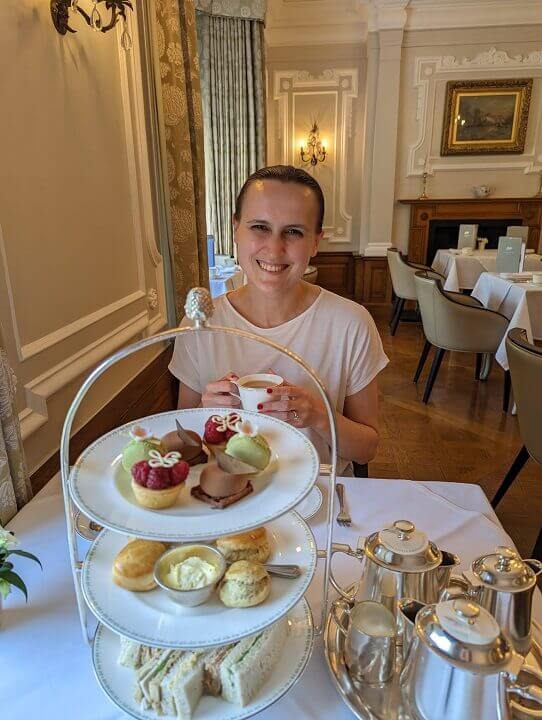
The UK is famous for its tea drinking culture. It’s true that tea is many people’s hot drink of choice.
One of the most popular types of tea is English Breakfast, which is normally served with milk and, if needed, sugar. However, there is a huge variety of different teas on offer, whether you’re in a local supermarket or a traditional tearoom.
A great way to experience British tea culture is by enjoying a traditional afternoon tea. The experience involves quality loose-leaf tea paired with a selection of finger sandwiches, scones, and sweet treats.
Afternoon tea is normally offered by cafes, restaurants, and hotels. My personal favourite is the traditional afternoon tea at Bettys, available in their York and Harrogate locations.
It’s worth noting that although tea is still a part of daily life in the UK, it is gradually being overtaken by coffee. So, if you are not a fan of tea, you will have plenty of drink options on your next visit.
27.Fish and Chips
Fish and chips are considered the UK’s national dish. It consists of fried fish in batter, served with fried potatoes, commonly known as chips. Traditional sides and condiments include mushy peas, malt vinegar, and tartar sauce.
The origins of the dish are not definitively known. The potato was originally introduced to Europe from the New World. Both the French and the Belgians claim to have invented the fried potato. The method of cooking fish in this style was brought to the UK by Jewish immigrants in the 17th century.
It’s unclear who exactly decided to combine battered fish with fries and when this combination came into being. Some claim that the first fish and chips shop was opened in East London by Joseph Malin in 1860. There is also a competing claim that the first fish and chips shop opened its doors in Oldham, Lancashire also in 1860.
While we may never know the true origins of this dish, it doesn’t mean we can’t enjoy it today. Fish and chips are practically ubiquitous across the UK. From traditional chippies in seaside towns to gastropubs and high-end seafood restaurants, you’ll be able to enjoy this dish wherever you go.
28.Sunday Roast
Another traditional meal for which the UK is famous is the hearty Sunday roast. It normally involves roast beef served with gravy, roast potatoes, Yorkshire puddings, and vegetables such as carrots and parsnips.
This hearty meal is a great excuse for family and friends to get together. Beef is the classic choice for this dish, but it can also be made with other meats such as chicken, lamb, or pork. There are many online recipes from trendy chefs who offer their own takes on this British staple if you’d like to try making it at home.
Although the Sunday roast is traditionally enjoyed at home, many pubs and restaurants offer their own versions, sometimes even serving it on other days of the week. This is perfect for those looking to enjoy this type of meal without the hassle of cooking.
29.Chicken Tikka Masala
Fragrant curries are often associated with Indian cuisine. However, this popular dish, featuring succulent pieces of chicken in a creamy curry sauce, was actually invented in the UK.
Although its exact origins are still contested, the story goes that it was invented in 1971 by chef Ali Ahmed Aslam at the legendary Shish Mahal curry house in Glasgow.
As with many other historic dishes, we may never know the whole truth. However, the next time you’re in the UK, be sure to taste this unofficial national dish at your local curry house.
30.Music Icons
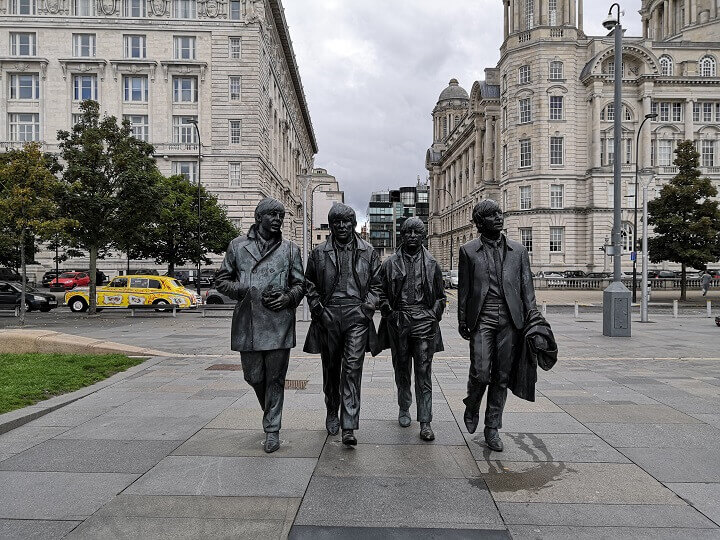
The UK has also produced many of the world’s top music artists, especially in the pop and rock genres. From the Beatles and Queen to the Rolling Stones and Pink Floyd, numerous British music exports have become international household names.
Nevertheless, the UK music industry doesn’t rest on its laurels. New star artists like Adele, Ed Sheeran, and Dua Lipa continue to emerge, and undoubtedly, more will appear in the future.
There’s a good chance that many of the UK’s biggest acts will, at some point, go on tour in a town or city near you. However, you might also consider combining a trip to the UK with a gig to experience local musicians on their home turf.
If you’d like to learn more about the history of British pop and rock, be sure to add the British Music Experience Museum to your itinerary. It is aptly located in Liverpool, the home of the Beatles.
31.Music Festivals
Along with famous musicians, the UK also hosts some of the world’s best music festivals. They are an important part of the local events calendar and come in a variety of formats and sizes. Whether you’re a fan of techno, classical, jazz, or rock, there’s a festival tailored for you.
Arguably, the most renowned festival in the UK is Glastonbury, set in the rolling countryside of Somerset. Spanning five days, it draws leading artists from around the globe, showcasing a wide array of musical genres.
While tickets are on the pricier side (at £340/US $430 per person in 2023) and can be challenging to secure, the experience is certainly worth the investment at least once in your lifetime.
Other noteworthy music festivals to consider include Reading and Leeds, the Isle of Wight, and Latitude, to name a few. Ensure you book tickets ahead of time to secure your spot.
32.Harry Potter
One of the UK’s most well-known and beloved cultural exports is Harry Potter. The character started his life in a series of fantasy novels created by British author J.K. Rowling and published between 1997 and 2007.
The adventures of a young wizard, Harry, and his friends Ron and Hermione at Hogwarts School of Witchcraft and Wizardry captured the hearts and minds of people worldwide. This immense popularity led to a blockbuster Hollywood movie series and, later, even a stage play.
Many Harry Potter fans travel to the UK to visit locations associated with both the books and films. One of the most popular experiences is the Harry Potter Warner Bros Studio Tour, where you can see the original sets, props and costumes used in the film series.
Other popular spots to visit include Platform 9¾ at King’s Cross Station from which the Hogwarts Express departed, Leadenhall Market that was used as Diagon Alley, and the Divinity School at Oxford University, among many others.
London boasts an extensive selection of Harry Potter filming locations tours. Here are some quality options for your next trip:
- London: Harry Potter Movie & Book Locations Walking Tour
- London: Harry Potter Locations Walking Tour
- London: Harry Potter Filming Locations Walking Tour
33.Bad Weather
The UK is also famous for its bad weather. The common perception is that it’s usually cold, rainy, and miserable, with sunshine being practically non-existent. But is that really the case?
Compared to many other global destinations, the UK actually has a mild climate, largely free of extreme temperatures—except for the occasional summer heatwave.
In the summer, temperatures range between 11°C and 20°C (52°F – 68°F), although they can rise significantly during a heatwave. In the winter, they fluctuate between 1°C and 7°C (34°F to 45°F), with some regions experiencing temperatures below freezing.
The climate in the UK varies by region: the south and east tend to be drier and sunnier, while the northern regions are generally colder and rainier.
Contrary to popular belief, the UK doesn’t receive an unusually high amount of rainfall; it’s only slightly above the global average. Many locals are unaware of how rainy it can be elsewhere. For example, Auckland in New Zealand —often thought of as warm and sunny year-round—receives twice as much rain as London.
One thing to note is that UK weather is unpredictable. It’s entirely possible to enjoy beautiful sunshine in the morning only to endure a miserable, rainy afternoon.
If you’re planning to visit the UK, I recommend packing a variety of clothing to accommodate the ever-changing weather conditions
34.Hadrian’s Wall
Hadrian’s Wall is a World Heritage Site and one of the most significant ancient monuments from the time of the Roman invasion of Britain. It stretches for 73 miles from coast to coast across the sparsely populated county of Northumberland in Northern England.
Hadrian’s Wall was originally built as a defensive border the north-western frontier of the Roman Empire. Along the stretch of the wall, you can still find the remains of towers, forts and settlements once occupied by the Romans. There are also several museums in the surrounding towns where you can see rare Roman artefacts obtained from local archaeological excavations.
One of the best ways to experience this cultural icon and the stunning landscapes surrounding it is on foot. The 135km (83 mile) Hadrian’s Wall Path is a National Trail that follows along the wall from Wallsend in Newcastle upon Tyne in the east to Bowness-on-Solway in the west.
It usually takes between five and seven days to complete the whole path. However, if a multi-day trek is not an option, you can tackle sections of the wall on day trips instead.
35.Scottish Highlands
When people think of famous areas in the UK, the Scottish Highlands often come to mind. Located in the northwest of Scotland, this expansive region boasts some of the most dramatic and untamed landscapes in the UK.
The Highlands offer a myriad of activities for visitors, so it’s unsurprising that it’s a popular destination for both UK and international tourists. From hiking in Cairngorms National Park and climbing Ben Nevis, the UK’s highest peak, to visiting ancient castles and tasting whisky at historic distilleries, there is something for everyone.
The Highlands are also a fantastic destination for road trips. They are home to the iconic North Coast 500, which encompasses many stunning natural sites in the northern part of the region. I also recommend a dedicated road trip around the Isle of Skye, which boasts some truly magnificent landscapes.
Whatever part of the Highlands you decide to explore on your next trip, you’re sure to fall in love with the region’s rugged beauty. It is truly the UK’s adventure playground.
36.Birthplace of Golf
Another sport that the UK is famous for creating is golf. The version of golf most familiar to today’s players originated on the eastern coast of Scotland in the Middle Ages.
The small coastal town of St. Andrews in Fife is widely recognized as the home of golf, as it is where the earliest references to the game are found. The town is home to the first-ever 18-hole course, the Royal and Ancient Golf Club of St. Andrews, which continues to host some of the most prestigious golf tournaments in the world.
The St. Andrews Golf Club is open to the public, allowing regular golfers to enjoy this iconic course as well. Please note that to gain access to the course, you’ll need to enter a ballot that is drawn 48 hours before play. More information on how to enter can be found here.
Don’t worry if things don’t work out with St. Andrews; there are plenty of other excellent, historic golf courses to enjoy around the UK.
37.London’s West End
Theatre has traditionally been an important part of the cultural life in the UK. Over the centuries the country has produced a wealth of talented playwrights, directors and actors.
The theatre scene throughout the UK is both vibrant and diverse, with London’s iconic West End offering the crème de la crème of theatrical experiences. This district is home to 39 theatres, each unique in size and style.
Whatever your preferences or budget, the West End will have something for you. Whether you’re into blockbuster musicals such as Les Misérables and Frozen or edgy plays by trendy contemporary playwrights, a raft of theatre experiences awaits you.
I highly recommend booking your tickets as far in advance as possible to ensure you don’t miss out. The Official London Theatre website is a great resource for exploring current shows and booking your tickets.
38.Diverse Accents
Despite its relatively small size, the UK boasts an incredible variety of regional accents, more so than other English-speaking countries. Accents can reveal information about a person’s geographic origins, social background, and even age and ethnicity.
This rich diversity in accents has historical roots. As different Germanic tribes settled in various parts of the UK many centuries ago, they brought their native languages with them. Over time, these languages evolved into the local dialects we hear today.
Even today, accents can vary dramatically between geographically close cities, such as Manchester and Liverpool, for instance. These accents are a significant part of people’s personal identity and can continue to evolve over time.
Some UK accents are notoriously difficult for foreign visitors to understand, primarily due to lack of exposure. However, the more time you spend listening to a particular accent, the more quickly you’ll become used to it.
39.Inventions and Scientific Breakthroughs
The UK is famous for its traditions and history, but this hasn’t prevented the country from excelling in innovation and science. In fields ranging from medicine and physics to engineering and natural sciences, the UK has had a significant impact on modern life.
Some of the groundbreaking inventions originating in the UK include Isaac Newton’s reflective telescope, the steam engine, and the first commercial telegraph. More recently, the UK has been the birthplace of the first cloned mammal, Dolly the Sheep, the first gene-editing therapy, and the first SMS message.
To learn more about inventions and scientific advancements that took place in the UK, you can visit various science museums across the country. London’s Science Museum boasts an impressive collection that spans science, medicine, and technology, not only from the UK but from around the world as well.
Another museum worth adding to your list is the Science and Industry Museum in Manchester. This museum is an excellent place to learn about the city’s history of innovation, which fuelled the Industrial Revolution.
For those interested in the history of medicine, the Surgeons’ Hall Museum in Edinburgh is a must-visit. This museum covers various topics, including pathology, surgery, and dentistry. However, be prepared for some somewhat morbid displays.
40.Quaint Seaside Towns
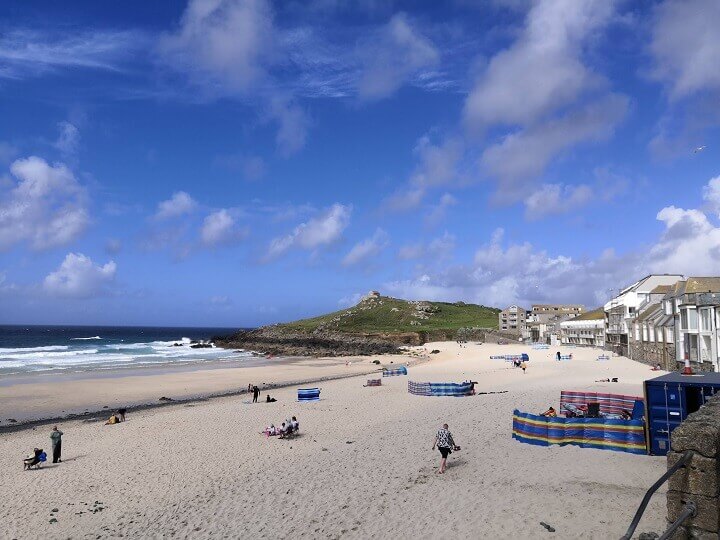
Although most international visitors tend to focus on historic cities and well-known areas of natural beauty like the Highlands, the UK also boasts beautiful coastal spots worth visiting.
The country has a rich legacy of quaint seaside towns, many of which rose to prominence during the Victorian era in the 19th century. Thanks to the development of railroads, travel became more accessible then, allowing many people to escape the city for some sea and sun.
Unfortunately, the fortunes of these seaside towns declined in the latter half of the 20th century as foreign holidays became more accessible to the masses. Many of these towns have not fully recovered and still contain pockets of deprivation.
Nevertheless, a few seaside towns have successfully reinvented themselves for modern times. From the artistic ambiance of St Ives in Cornwall to the Victorian charm of Bournemouth in Dorset, and the bohemian vibe of Brighton, there is a wealth of great coastal destinations to discover on your next UK trip.
41.Medieval Heritage
History fans will be delighted by the UK’s many well-preserved Medieval towns and cities. These charming destinations are sure to make you feel as if you’ve travelled back in time.
The city of York, situated in the north of England, is an excellent place to experience the many layers of UK history. It features narrow medieval lanes lined with slightly wonky buildings, the incredible York Minster, and a selection of cosy, historic pubs.
Chester, another city in the North, has Roman origins and is also home to a charming town centre featuring a medieval two-tiered shopping walkway. Oxford is another must-visit city for fans of medieval architecture.
While Edinburgh is not exclusively medieval, its Old Town boasts numerous fine examples of medieval architecture, from the grand St. Giles’ Cathedral on the Royal Mile to the charming St. Margaret’s Chapel within Edinburgh Castle.
42.Fashion Trendsetters
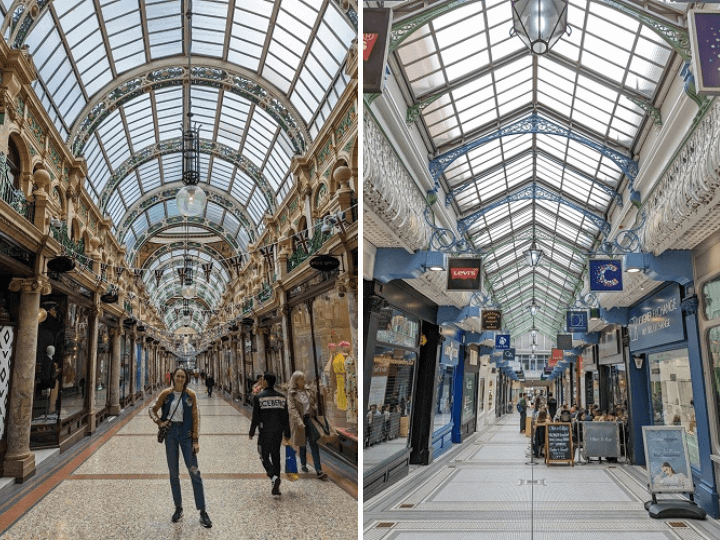
The UK is home to many influential designers whose names are known by fashion lovers all over the world. London hosts a prestigious fashion week that showcases both established and new designers, setting the international fashion trends for the year ahead.
The lineup of the most iconic UK fashion designers includes the likes of Vivienne Westwood, Paul Smith, Stella McCartney, and John Galliano, among many others.
London is the best shopping destination in the UK, but you can find pieces by many famous and emerging designers in other parts of the country.
The northern city of Leeds is considered one of the best shopping destinations outside of London. Manchester also has a few independent fashion stores concentrated in the trendy Northern Quarter.
Those looking to learn about the UK’s fashion history should check out the Fashion and Textile Museum in London. It is the only UK museums dedicated to all things fashion.
43.Edgy Contemporary Art
The UK is home to a plethora of established art galleries and has a rich history in traditional fine art. However, the local art scene is not confined to past successes; it is forward-looking and continually seeks the next generation of emerging artists.
Some of the best-known artists from recent decades include David Hockney, Damien Hirst, and Tracy Emin. The latter two were part of the Young British Artists group in the ’90s. Under the patronage of businessman and gallerist Charles Saatchi, they pushed the boundaries of British art.
You can visit the prestigious Saatchi Gallery in London to discover new artistic voices on the scene. Other excellent venues to experience modern and contemporary art around the UK include the Tate Modern and its branches in Liverpool and St. Ives, the Whitworth in Manchester, and the Gallery of Modern Art in Glasgow.
Final Thoughts
So, now you know what the UK is famous for. The next step is to start planning your UK adventure to experience many of these things for yourself.
If you’re heading to London for the first time, check out this guide to make the most of your trip. There is also a raft of other UK cities worth visiting, including Manchester, York and Liverpool.
Beyond cities, the UK is home to beautiful countryside and historic towns and villages. Why not include a trip to Cornwall or Yorkshire as part of you next adventure?
FAQs: What is the UK Famous for?
It’s hard to choose just three as the UK is famous for so many things. The biggest three are probably football, the Royal Family and drinking tea.
The UK has a long history, and every era has influenced the country in different ways. In addition, the UK has also been a wealthy country for a very long time. Without it, scientific breakthroughs, innovative universities and the diversity of the arts would not be possible, as capital is normally the driving force for these.
The UK produces many different products popular around the world, from high end cars such as Aston Martin and Land Rover to sweet treats like Jaffa Cakes and Jaffa Cakes.
Cadbury is the most famous UK chocolate. Personally, I’m not a fan as I don’t think it’s of good quality, but it dominates the market in the UK and well-known around the world.
Enjoyed this guide to the things for which the UK is famous? Bookmark or pin it for later.

Related Reads: The UK
- The 19 Best Cities to Visit in the UK
- The 11 Best Things to Do in London for First Timers
- What is London Famous for? 55 Things You Need to Know
- 10 Best Things to Do in York
- How to Spend a Weekend in Manchester: The Ultimate Guide
- How to Spend a Weekend in Liverpool
- One Day in Leeds: The Ultimate Itinerary
- The Perfect Weekend in Harrogate Itinerary
- The 10 Best Things to Do in Cornwall
- 12 Best Things to Do in Penzance, Cornwall

